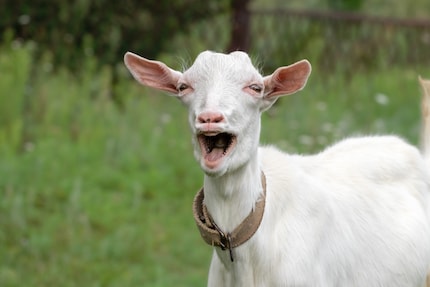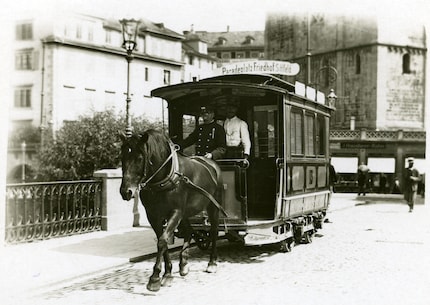
Opinion
A Knight of the Seven Kingdoms has given Westeros its soul back
by Luca Fontana

"Pfèrd" instead of "Ross", "Träppè" instead of "Schtägè", "arbäitè" instead of "schaffè" and "Fläschènè" instead of "Fläschè": Our children are unlearning the dialect at a rapid pace. Yes, language is changing - but does it have to be in this terrible direction? The senseless protest of an ageing language guardian.
You are probably familiar with the legendary Swiss Kasperli theatres. On the one hand, they contain nasty stereotypes, and on the other, the most beautiful old Zurich German. "Du chasch mèr blèèterlè", says Kasperli to Jägermeister Möösli when he is so scared of the dragon that he doesn't want to come into the forest. And the frightened Kurtli Mosimann shouts: "Mèrci, Butzèli!" when "d Häx Nörgeligäx" addresses him there.
Wait a minute, blèèterlè and mèrci? Yes, because Zurich German has two different "ä": the light one from Häx and Zwätschgeräuber and the darker one from er, wer and leer - but pronounced not as är, wär and läär, but as èr, wèr and lèèr. And what does it mean? "Ès Blèèterli" is the diminutive of "Blaatere", the bubble. We also find it in "Blèèterliwasser", which means sparkling water. "Du chasch mèr i d Schuè blaasè" comes closest to Kasperli's statement.

Be that as it may, the Punch and Judy theatres (Chaschperli, by the way, not Chasperli!) were produced quite a while ago. Ines Torelli, Paul Bühlmann and Jörg Schneider recorded their legendary radio plays between 1967 and 1976. Today's children talk very differently. Mine, for example.
"Dad, I need a horse," said my son a few years ago when he was playing with his Lego knights. "It's called a horse!" I reprimanded him. And hoped that was the end of the matter. In the sense of: This would remain the only word to be corrected and no further correction would be necessary.
Far from it. My son kept using this German, not Swiss German, word and I kept correcting him that it was a "Ross", not a "Pferd". And that you say "schaffè", not "arbäitè". And certainly not "Zygè"! It's a "Gäiss"!

My son kept bringing home new and ever worse Germanisms from school. And it drove me half out of my mind. I found it dreadful to hear such things, especially from the mouth of a child who was extremely gifted with languages.
I discussed the matter with my old friend Stefan. He has three children who also talk like that. "It's terrible," Stefan reports: "They say 'Was ès Goal!' instead of 'Was für ès Goal!' and 'èm See entlang' instead of 'èm See naa'! And 'benutzè' instead of 'bruuchè'!"
Like me, he objects every time. He doesn't get any sympathy, just ridicule: "Dad, I can't help it that you talked so funny earlier!"
Funny? That's right! We spoke proper Zurich German and still do! Frächi Chäibè!
Of course, the question arises as to how bad it all is. Butter hasn't been called "Anke" for a long time. And the potato skin is no longer called "Schelfèrè", and nobody except Kasperli says "Glünggi" any more. Hardly anyone even knows that "lehren" and "lernen", two totally different things, are both called "leerè" in Zurich German and that "lèrnè" has always been wrong.

Yes, language is constantly changing. But does it have to be such a change? Change is unavoidable, but not loss. Swiss German in its current form seems like a cheap copy of itself. No wonder more and more Swiss children have to attend DaZ courses (German as a second language), which are actually intended for migrant children - they no longer have a proper command of their own mother tongue.
The problem is not new, by the way, as the pseudoplural suffixes show: "Fläschènè" and "Flaggènè" - although they are also Fläschè and Flaggè in the plural. It is also "zwäi Tee und zwäi Kafi", not "zwäi Tees und zwäi Kafis". The -s as a plural form is also neither known nor permitted in Swiss German. It was simply imposed on him.
You should realise how stupid it sounds to say "ich hett gèrn zwäi Kafis"!

At home, things continued to go downhill. One evening, my son wanted to say something about a "Zuun wärfè". I was stunned. "Zuun!" "Wärfè!" "Ès häisst übèr dè Haag ruèrè!" I said. And that I love him, no matter how he talks. And that this dreadful Neozüritüütsch had to come to an end. Please! I can't take any more!
But the low point was yet to come. I was on the phone to a friend and said in conversation: "Hèruusfordèrig." She, no less militant in these matters: "Thomas, have you said "Hèruusfordèrig" now? That's an insult!" A serious dishonour.
I ended up talking about the topic with my friend Daniel, whom I've known for almost 40 years and who also has three children who bring home terrible words. "Chürzlich!" said Daniel, shaking his head. "Chürzlich?" I asked, not recognising the problem. "Thomas! That means 'letschti'! And it doesn't mean 'back then' either! It means doo! Or doozmaal!"
That's right. I didn't know that. I'm happy!

As I write this, my son is playing Fortnite with his friends. And asks them to follow him in "diè Eggè deet hinè". Hrrngn! It's DÈ Eggè! Male!
Should I say something else? He's not interested anyway, and if I blurt it out in his game now, he'll be totally embarrassed in front of his friends. Although I haven't even had to say anything to be embarrassed for a while now.
The Chaschperli in me is stronger. I stand in front of the TV, where my son is happily handing out headshots, and announce: "Dè Eggè! Not that one! Male!"
The look I get shows me how old I've become.
Author Thomas Meyer was born in Zurich in 1974. He worked as a copywriter before publishing his first novel «The Awakening of Motti Wolkenbruch» in 2012. He's a father of one, which gives him a great excuse to buy Lego. More about Thomas: www.thomasmeyer.ch.
This is a subjective opinion of the editorial team. It doesn't necessarily reflect the position of the company.
Show all